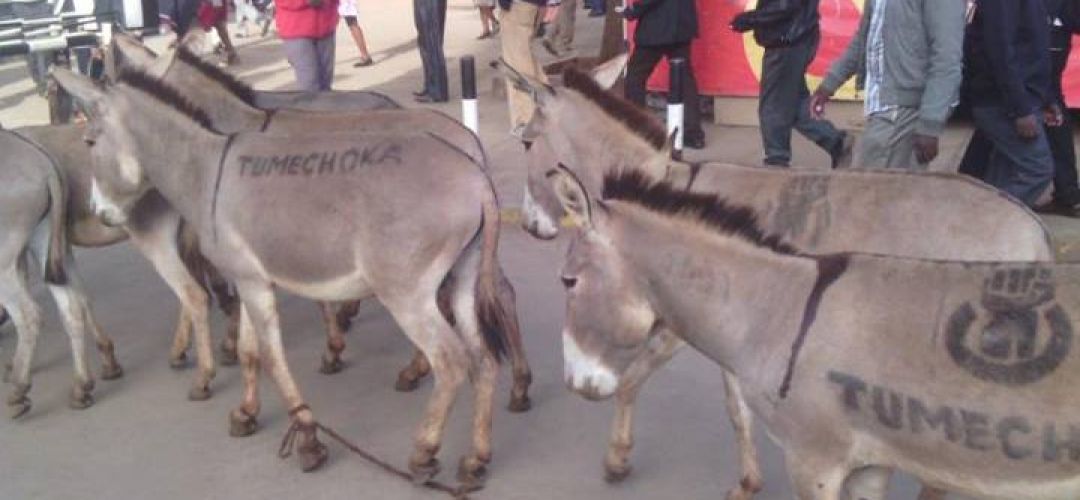Kenya identified as donkey smuggling conduit in East Africa

By Fauxile Kibet
NAIROBI: A report has identified Kenya as a conduit for smuggling donkeys from neighboring East African countries.
Oxpeckers Investigative Environmental Journalism sponsored by The Donkey Sanctuary, tracked the trade route of donkeys being smuggled from Somalia, Tanzania and Ethiopia into Kenya – which has opened abattoirs for donkeys.
The research revealed that donkeys were being sourced both legally and illegally from Ethiopia. The donkeys are trucked with no food or water for 1,100km to reach the border post in Moyale.
The upsurge in cases of donkey smuggling has been caused by demand from China, where donkey skin is used in making traditional medicine.
The opening of then Kenyan donkey market has seen a downward spiral in the population of the animals in the East African country, forcing traders to depend on neighboring countries for supply.
In 2017, Kenya announced that it had temporarily banned the licensing of new donkey abattoirs following revelations that the animals face extinction due to high demand for their products in China.
“Going forward, all licences will be based on applicants providing a multiplication programme to arrest the rate of decline,” said the director of Veterinary Services of Kenya, Dr Thomas Dulu.
Petitions demanding the closure of the abattoirs have been on the rise in Kenya as cases of donkey theft rise with the three existing abattoirs slaughtering an average of 300 donkeys in a day.
In China, donkey population has declined by more than half in two decades, forcing the country to turn to its newest friend Africa for donkey skin – which us boiled to produce gelatine, a key ingredient in the manufacture of ejiao – a traditional medicine.
BANNED
In Africa, Niger, Burkina Faso, Mali and Senegal has banned the trade of donkeys for their hides and Ethiopia has already taken a similar step by closing down two abattoirs. A major concern however is that trade continues on the black market and there is increased trade in other African countries.
Across East Africa, donkeys remain crucial to rural economies, where they are used to transport food, water, firewood and farm produce.
According to Brooke international, an animal welfare charity dedicated to improving the lives of working horses, donkeys and mules, it is vital that the welfare of donkeys involved is properly addressed
“The effect we’re seeing on the African donkey population is proving even greater than we originally feared. Alarming reports have been coming in from Kenya, Ethiopia and South Africa, and it’s clear that it is affecting the people, who rely on donkeys to support their livelihoods,” said Patra Ingaram, Chief Executive of Brooke.
Brooked added that the lifetime value of donkeys in their contribution to community livelihoods is worth more than being sold for their meat or hides.
“In taking away someone’s donkey, it can mean taking away their means of making a living, potentially for a dangerously long time.”
Donkey Sanctuary Campaign Manager Simon Pope argues that every donkey being stolen from the region from a dependent family is a recipe for poverty.
“It might mean that families cannot afford to put food on the table that night, or that they have to work even harder and longer now that their principal means of earning a living has gone.”
According to the investigation by Oxpeckers, trucks arrive everyday at the Moyale border with donkeys headed for slaughterhouses.
Three Chinese companies have so far opened donkey slaughterhouses in the Kenya at Nakwaalele, Turkana, Mogotio in Baringo, and Naivasha in Nakuru.